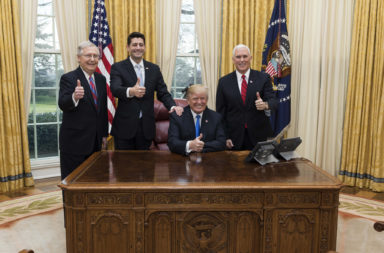Oxfam report claims that 8 men are richer than 3.6 billion people combined.
- Bill Gates, Warren Buffett, Carlos Slim, Jeff Bezos, Mark Zuckerberg, Amancio Ortega, Larry Ellison and Michael Bloomberg collectively worth $426 billion according to Oxfam report.
- Stunning statistic criticized and raises income inequality questions.
- Why has the world turned against globalization?
A new study released by Oxfam draws from Forbes’ annual list of billionaires and Credit Suisse’s Global Wealth Databook to arrive at the eye-opening conclusion that just 8 men have a great combined wealth than the rest of the world.
The Oxfam report said that the richest 1% has now owned a great fortune than the rest of the whole world since 2015.
- In the U.S., the richest 1% control 42% of the wealth.
- seven out of 10 people live in a country where inequality has worsened over the past three decades.
- over the past 25 years, the top 1% has gained more income than the bottom 50% put together.
- There’s also a big gender disparity. Of the 1,810 dollar billionaires around the world, 89% are men.
- On current trends it will take 170 years for women to be paid the same as men.
- Seven out of 10 people live in a country that has seen a rise in inequality in the last 30 years. Between 1988 and 2011 the incomes of the poorest 10 percent increased by just $65 per person, while the incomes of the richest 1 percent grew by $11,800 per person – 182 times as much.
“Despite world leaders signing up to a global goal to reduce inequality, the gap between the rich and the rest has widened. “Far from trickling down, income and wealth are being sucked upwards at an alarming rate,” the report said.
Is it Relevant?
The timing of the report is telling. Designed to build popular outrage to income inequality and put pressure on the World Economic Problem in Davos, the use of statistics has been criticized by several economists.
Many point out the simple fact that the wealth of a few billionaires is largely irrelevant to daily life of most people.
Were the wealthiest in the world to redistribute their funds then it would yield a total sum of around 150 dollars per person on the planet.
Several have noted that economists traditionally avoid focusing on a few headline-grabbing examples in favor of measures like the Gini co-efficient and the Pareto curve to communicate a broader picture of society and to illustrate a more nuanced picture over time.
Examples from history of punitive tax rates for the wealthy, as in the 1970s in Labour’s UK, in fact led to an increase in inequality which complicates the situation somewhat.
What is clear is that Oxfam have tapped into a growing distaste for current financial systems.
Loud Cry for Economic Change
The populist election of president Donald Trump, Brexit and Oxfam have a distrust of the benefits of globalization in common.
Many feel the internationalization of the first world in the last 50 years have left their borders and economies weak and vulnerable despite repeated assertions by “experts” to the contrary.
Oxfam’s report certainly feeds into the strong undercurrent of distrust of the world’s wealthy.





